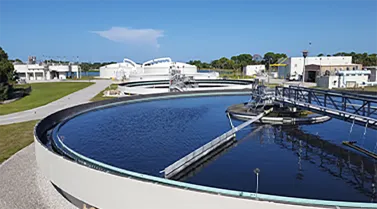Aluminum Die Casting Solutions for High-Quality Industrial Applications and Products
The Advantages of Aluminum Die Casting Products
Aluminum die casting has emerged as a highly favored manufacturing process in various industries, owing to its remarkable versatility and cost-effectiveness. With its ability to produce complex shapes with high precision, aluminum die casting is a vital technique for producing a wide range of products, from automotive components to consumer electronics.
What is Aluminum Die Casting?
Aluminum die casting is a metal casting process that involves forcing molten aluminum into a mold cavity under high pressure. This method ensures that the finished products have a smooth surface finish and dimensional accuracy. The molds used in die casting, also known as dies, are made from high-strength steel that can withstand repeated use, making the process suitable for high-volume production.
Key Benefits of Aluminum Die Casting
1. High Precision and Accuracy One of the most significant advantages of aluminum die casting is its ability to produce highly precise and intricate shapes. The pressure used in the die casting process ensures that the molten aluminum fills the mold completely, minimizing the risk of air pockets and defects. This level of accuracy is crucial in industries like automotive, where even minor deviations can lead to significant implications on performance and safety.
2. Lightweight Yet Strong Aluminum is known for its lightweight properties combined with high strength. This characteristic makes aluminum die casting products ideal for applications where reducing weight is critical, such as in automotive and aerospace industries. Lightweight components contribute to improved fuel efficiency and performance while maintaining structural integrity.
3. Excellent Surface Finish Products made through the aluminum die casting process often require minimal post-processing. The die-cast surface is usually smooth and can have a high-quality finish that is suitable for aesthetic purposes without additional machining. This feature helps manufacturers save both time and costs associated with finishing operations.
aluminum die casting products

4. Cost-Effective for Mass Production While the initial setup costs for aluminum die casting can be higher due to the complexity of die manufacturing, the overall cost per unit decreases significantly with mass production. The efficiency of the process allows for high production rates, making aluminum die casting an economically appealing choice for manufacturers looking to produce components in large volumes.
5. Corrosion Resistance Aluminum is naturally resistant to corrosion, which significantly extends the lifespan of products made through die casting. This property makes aluminum die casting products particularly suitable for outdoor applications and environments where exposure to moisture and other corrosive agents is a concern.
6. Recyclability Another noteworthy aspect of aluminum is its recyclability. Aluminum die casting products can be recycled without losing their quality, making the process environmentally friendly. Manufacturers are increasingly adopting sustainable practices, and utilizing recyclable materials helps reduce waste and energy consumption.
Applications of Aluminum Die Casting
The applications of aluminum die casting products span various industries. In the automotive sector, components like engine blocks, transmission cases, and structural parts are commonly produced using this method. Additionally, the appliance industry benefits from die-cast aluminum for items such as housings and brackets due to their lightweight and aesthetic appeal.
Electronics manufacturers also leverage aluminum die casting for producing casings and frames that require both durability and a sleek look. Moreover, the aerospace industry utilizes aluminum die casting for components that demand lightweight solutions without compromising on strength.
Conclusion
Aluminum die casting products represent a modern manufacturing solution that combines efficiency, precision, and sustainability. The numerous advantages of this process, including its ability to produce lightweight yet robust components, superior surface finishes, and cost-effectiveness for mass production, continue to drive its adoption across various industries. As technology advances, further innovations in aluminum die casting are likely to emerge, enhancing its application and efficiency, solidifying its position as a key player in modern manufacturing.
-
Precision Casting AI Solution with GPT-4-Turbo | Optimized QualityNewsAug.02,2025
-
Precision Sheet Metal Stamping Manufacturer | Fast & ReliableNewsAug.01,2025
-
OEM Sand Cast Pump Valve Fittings - Baoding Hairun Machinery And Equipment Trading Co., Ltd.NewsAug.01,2025
-
Custom OEM Impellers | High Efficiency & PrecisionNewsAug.01,2025
-
OEM Sand Cast Pump Valve Fittings - Baoding Hairun Machinery | Customization, Quality AssuranceNewsAug.01,2025
-
OEM Sand Cast Pump Valve Fittings - Baoding Hairun Machinery And Equipment Trading Co., Ltd.NewsAug.01,2025















